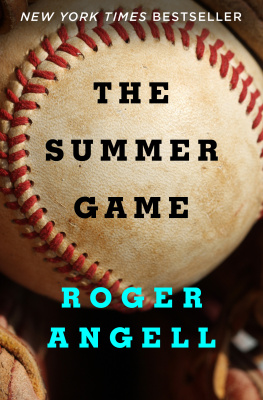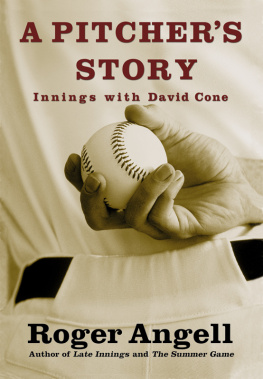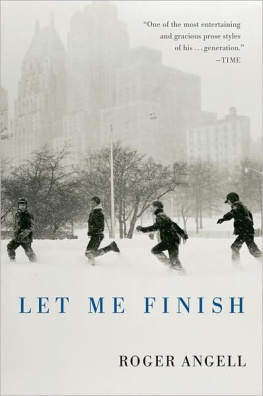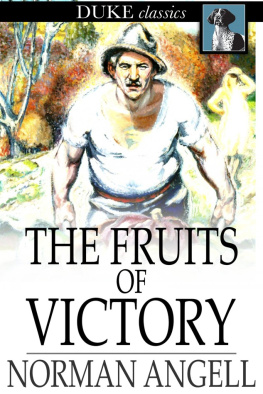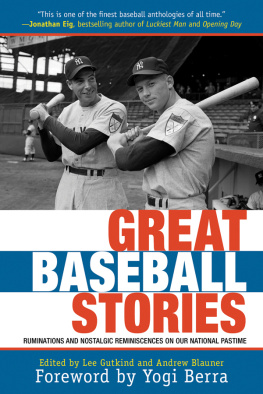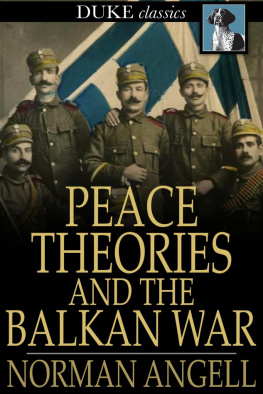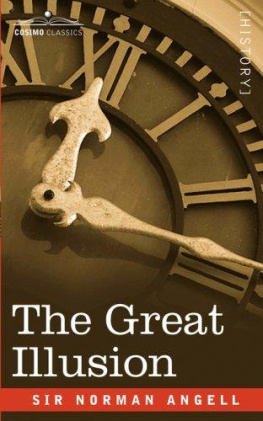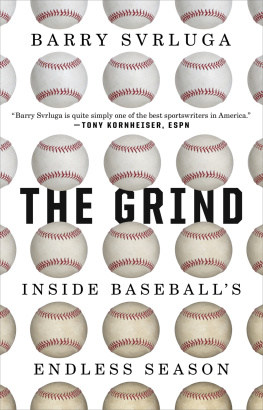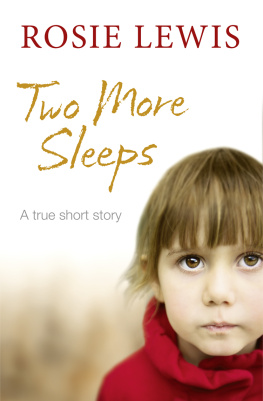Roger Angell - The Roger Angell Baseball Collection
Here you can read online Roger Angell - The Roger Angell Baseball Collection full text of the book (entire story) in english for free. Download pdf and epub, get meaning, cover and reviews about this ebook. year: 2013, publisher: Open Road Media, genre: Detective and thriller. Description of the work, (preface) as well as reviews are available. Best literature library LitArk.com created for fans of good reading and offers a wide selection of genres:
Romance novel
Science fiction
Adventure
Detective
Science
History
Home and family
Prose
Art
Politics
Computer
Non-fiction
Religion
Business
Children
Humor
Choose a favorite category and find really read worthwhile books. Enjoy immersion in the world of imagination, feel the emotions of the characters or learn something new for yourself, make an fascinating discovery.
- Book:The Roger Angell Baseball Collection
- Author:
- Publisher:Open Road Media
- Genre:
- Year:2013
- Rating:4 / 5
- Favourites:Add to favourites
- Your mark:
- 80
- 1
- 2
- 3
- 4
- 5
The Roger Angell Baseball Collection: summary, description and annotation
We offer to read an annotation, description, summary or preface (depends on what the author of the book "The Roger Angell Baseball Collection" wrote himself). If you haven't found the necessary information about the book — write in the comments, we will try to find it.
The Roger Angell Baseball Collection — read online for free the complete book (whole text) full work
Below is the text of the book, divided by pages. System saving the place of the last page read, allows you to conveniently read the book "The Roger Angell Baseball Collection" online for free, without having to search again every time where you left off. Put a bookmark, and you can go to the page where you finished reading at any time.
Font size:
Interval:
Bookmark:
Five Seasons
Season Ticket



For my father
THESE PIECES COVER A span of ten years, but this book is certainly not offered as a comprehensive baseball history of the period. Most of the great winning teams and a good many of the horrendous losers of the decade are here, while the middle ground is often sketchy. I have written about some celebrated playersSandy Koufax, Bob Gibson, Brooks Robinson and Frank Robinson, Willie Maysagain and again, while slighting equally admirable figures such as Hank Aaron and Mickey Mantle. It is unfair, but this book is the work of a part-time, nonprofessional baseball watcher. In most of these ten seasons, I was rarely able to attend as many as twenty-five games before the beginning of the World Series; I watched, or half-watched, a good many more on television. Enthusiasm and interest took me out to the ballpark; I never went out of a sense of duty or history. I was, in short, a fan. Unafflicted by daily deadlines or the weight of objectivity, I have been free to write about whatever I found in the game that excited or absorbed or dismayed meand free, it will become evident, to draw large and sometimes quite mistaken conclusions from an emaciated body of evidence. I have added some updating and footnotes in an attempt to cover up the worst mistakes. When I began writing sports pieces for The New Yorker, it was clear to me that the doings of big-league baseballthe daily happenings on the field, the managerial strategies, the celebration of heroes, the medical and financial bulletins, the clubhouse gossipwere so enormously reported in the newspapers that I would have to find some other aspect of the game to study. I decided to sit in the standsfor a while, at leastand watch the baseball from there. I wanted to concentrate not just on the events down on the field but on their reception and results; I wanted to pick up the feel of the game as it happened to the people around me. Right from the start, I was terribly lucky, because my first year or two in the seats behind first or third coincided with the birth and grotesque early sufferings of the Mets, which turned out to be the greatest fan story of all.
Then I was lucky in another way. In time, I made my way to the press box and found friends there, and summoned up the nerve to talk to some ballplayers face-to-face, but even with a full set of World Series credentials flapping from my lapel, I was still faking it as a news reporter. Writing at length for a leisurely and most generous weekly magazine, I could sum things up, to be sure, and fill in a few gaps that the newspapermen were too hurried or too cramped for space to explore, but my main job, as I conceived it, was to continue to try to give the feel of thingsto explain the baseball as it happened to me, at a distance and in retrospect. And this was the real luck, for how could I have guessed then that baseball, of all team sports anywhere, should turn out to be so complex, so rich and various in structure and aesthetics and emotion, as to convince me, after ten years as a writer and forty years as a fan, that I have not yet come close to its heart?
R.A.
Rustle of Spring
TODAY THE TIMES REPORTED the arrival of the first pitchers and catchers at the spring training camps, and the morning was abruptly brightened, as if by the delivery of a seed catalogue. The view from my city window still yields only frozen tundras of trash, but now spring is guaranteed and one of my favorite urban flowers, the baseball box score, will burgeon and flourish through the warm, languid, information-packed weeks and months just ahead. I can remember a spring, not too many years ago, when a prolonged New York newspaper strike threatened to extend itself into the baseball season, and my obsessively fannish mind tried to contemplate the desert prospect of a summer without daily box scores. The thought was impossible; it was like trying to think about infinity. Had I been deprived of those tiny lists of sporting personae and accompanying columns of runs batted in, strikeouts, double plays, assists, earned runs, and the like, all served up in neat three-inch packages from Pittsburgh, Milwaukee, Baltimore, Houston, and points east and west, only the most aggressive kind of blind faith would have convinced me that the season had begun at all or that its distant, invisible events had any more reality than the silent collision of molecules. This year, thank heaven, no such crisis of belief impends; summer will be admitted to our breakfast table as usual, and in the space of half a cup of coffee I will be able to discover, say, that Ferguson Jenkins went eight innings in Montreal and won his fourth game of the season while giving up five hits, that Al Kaline was horse-collared by Fritz Peterson at the Stadium, that Tony Oliva hit a double and a single off Mickey Lolich in Detroit, that Juan Marichal was bombed by the Reds in the top of the sixth at Candlestick Park, and that similar disasters and triumphs befell a couple of dozen-odd of the other ballplayersfavorites and knaveswhose fortunes I follow from April to October.
The box score, being modestly arcane, is a matter of intense indifference, if not irritation, to the non-fan. To the baseball-bitten, it is not only informative, pictorial, and gossipy but lovely in aesthetic structure. It represents happenstance and physical flight exactly translated into figures and history. Its totalsbatters credit vs. pitchers debitbalance as exactly as those in an accountants ledger. And a box score is more than a capsule archive. It is a precisely etched miniature of the sport itself, for baseball, in spite of its grassy spaciousness and apparent unpredictability, is the most intensely and satisfyingly mathematical of all our outdoor sports. Every player in every game is subjected to a cold and ceaseless accounting; no ball is thrown and no base is gained without an instant responding judgmentball or strike, hit or error, yea or nayand an ensuing statistic. This encompassing neatness permits the baseball fan, aided by experience and memory, to extract from a box score the same joy, the same hallucinatory reality, that prickles the scalp of a musician when he glances at a page of his score of Don Giovanni and actually hears bassos and sopranos, woodwinds and violins.
The small magic of the box score is cognominal as well as mathematical. Down the years, the rosters of the big-league teams have echoed and twangled with evocative, hilarious, ominous, impossible, and exactly appropriate names. The daily, breathing reality of the ballplayers names in box scores accounts in part, it seems to me, for the rarity of convincing baseball fiction. No novelist has yet been able to concoct a baseball hero with as tonic a name as Willie Mays or Duke Snider or Vida Blue. No contemporary novelist would dare a supporting cast of characters with Dickensian names like those that have stuck with me ever since I deciphered my first box scores and began peopling the lively landscape of baseball in my mindOssee Schreckengost, Smead Jolley, Slim Sallee, Elon Hogsett, Urban Shocker, Burleigh Grimes, Hazen Shirley Cuyler, Heinie Manush, Cletus Elwood Poffenberger, Virgil Trucks, Enos Slaughter, Luscious Easter, and Eli Grba. And not even a latter-day O. Henry would risk a conte like the true, electrifying history of a pitcher named Pete Jablonowski, who disappeared from the Yankees in 1933 after several seasons of inept relief work with various clubs. Presumably disheartened by seeing the losing pitcher listed as Jblnsi in the box scores of his day, he changed his name to Pete Appleton in the semi-privacy of the minors, and came back to win fourteen games for the Senators in 1936 and to continue in the majors for another decade.
Font size:
Interval:
Bookmark:
Similar books «The Roger Angell Baseball Collection»
Look at similar books to The Roger Angell Baseball Collection. We have selected literature similar in name and meaning in the hope of providing readers with more options to find new, interesting, not yet read works.
Discussion, reviews of the book The Roger Angell Baseball Collection and just readers' own opinions. Leave your comments, write what you think about the work, its meaning or the main characters. Specify what exactly you liked and what you didn't like, and why you think so.


